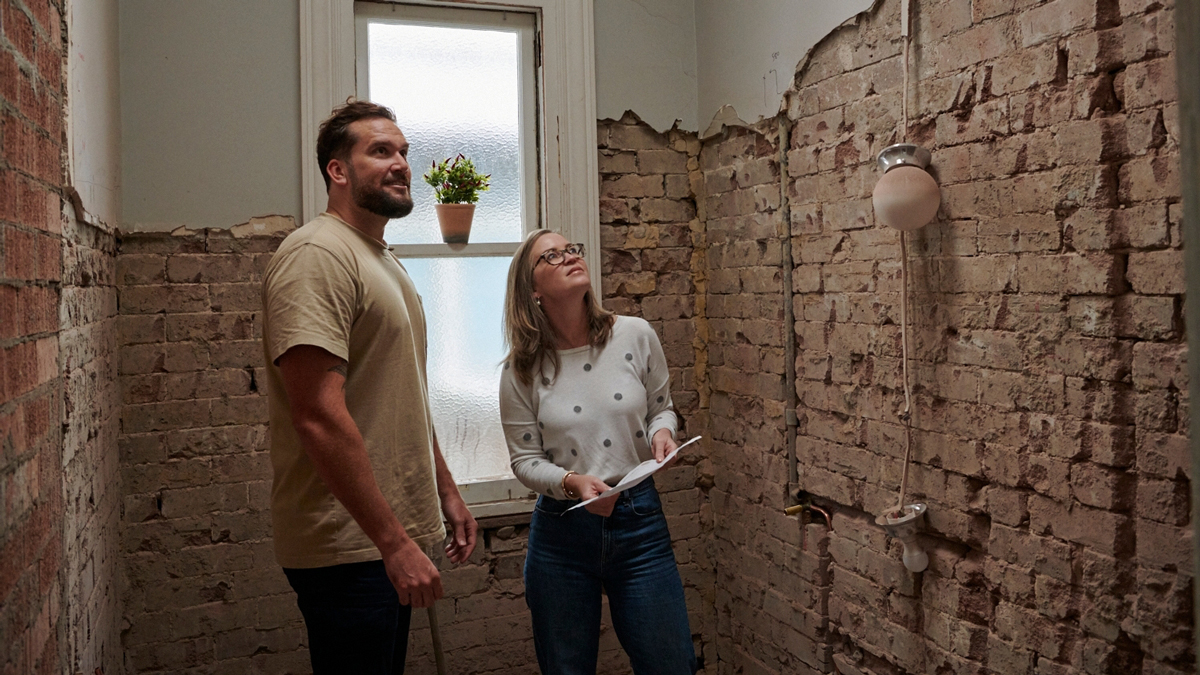A real-life guide to buying an investment property in Australia

Estimated read time: 5 Minutes
Buying real estate is often thought of as a smart way to grow your money. If you’re ready to get your journey started as a property investor in Australia, here are a few things you might want to consider.
Home ownership is an exciting life milestone, whether you plan to live in your property or invest as a source of income. Whether you’re new to the property market or buying your second investment, it’s important to know how to choose the right property, the costs involved, and the different ways it could work for you.
Why invest in property?
For many Aussies, owning property is seen as an option to get on the road towards financial independence in retirement and secure a bright future for their family.
Investing in real estate may also be a way to diversify your investment portfolio so you’re not relying completely on one income stream.
Whether you’re saving for a deposit or you’re ready to start applying for an investment property loan, it’s a good idea to do your homework first. Our article covers some of the basics.
What to consider when investing in property
To get the most from your property investment, there are a few things to consider. Location and property type are two of the biggest factors that can influence the value of your property investment.
Shortlisting suburbs with high growth, high rental yield and low vacancy rates could be a good place to start. You may also want to consider researching local employment, economic drivers and any planned changes in the area that could impact property prices.
It could also be a good idea to put yourself in the shoes of a tenant. Think about the features that you’d want – for example a garage or second bathroom, and easy access to the main shopping area and public transport. You may also be able to use the property’s age to gauge the potential need for maintenance over the years.
Whatever location and type of property you choose, it’s important to be clear on your budget. Banks and lenders generally ask for a minimum deposit of between 10% and 20% so make sure that that amount is comfortable for you.
At Pepper Money, we offer finance up to 95% of the purchase price on some of our home loan options, meaning you can start to look at buying a house once you've saved at least 5% of the purchase price. Enquire online today.
Once you’ve found an affordable property in the right location, it may help to ask yourself these six questions:
-
1
-
Does it align with the rest of my financial goals?
-
2
-
How does it fit into my overall investment plan?
-
3
-
What’s the lowest and highest potential rental income?
-
4
-
Can I cover the shortfall from the lowest income?
-
5
-
Can I cover all expenses if I don’t get tenants for a few months?
-
6
-
Am I comfortable with the level of risk involved?
The costs involved when investing in real estate
The two biggest costs of buying a property are usually your deposit and monthly mortgage repayments. But there are also other property costs that you may need to consider and work into your budget.
Stamp duty. The cost of transferring a property from one owner to another. This is a mandatory, state-imposed tax and its cost and payment timeframe varies from state to state. You can calculate your stamp duty with our online stamp duty calculator.
Conveyancing fees. A conveyancer handles the legal processes and documents involved in transferring a property title from one person to another to make sure it’s done correctly.
Property inspections. You’ll need to have your property inspected by a qualified building inspector, even if it’s brand new. The inspection covers minor and major defects, quality of construction, structural integrity, moisture issues and even potential for termites.
Property manager. It could be a good idea to hire one so you don’t have to find and deal with tenants, organise tradespeople for maintenance issues or stay updated on changes to property law.
Other running costs may include:
- council and water rates
- building insurance
- landlord insurance
- body corporate fees (for an apartment)
- land tax
- repairs and maintenance
Considerations when looking to invest in property
Like everything else, there two sides of the property investment coin – the desired upsides and the potential downsides.
Possible Benefits
Income generator
Having an additional income stream is one reason people choose to invest in property.
If the money you get from renting your investment property is more than you spend on it, that’s extra income for you.
This is often known as a rental yield.
Capital growth
If the value of your investment property increases over time, you may be able to sell it at a profit.
You may also build up equity in your property, which you could access by taking out a loan against its value. But remember that borrowing against your equity means increasing your debt.
Possible tax benefits
If your property expenses are more than your rental income, you may be able to deduct that loss from your taxable income and reduce your overall tax payment. This tax benefit is called ‘negative gearing’.
If in doubt, it could be a good idea to speak to an accountant or tax adviser about this in more detail.
Possible Drawbacks
Higher cost of entry
When you invest in property you will need a deposit, which is generally between 10% and 20% of the value of the property.
This requirement can make it harder to enter the property market when compared to other forms of investment like managed funds or Electronic funds transfers (ETFs).
Rising interest rates
When you have a mortgage, you are vulnerable to changes in the interest rate.
A higher interest rate may mean higher repayments which could affect your profit margins.
And, if your property’s value drops, you may end up owing more than the property is worth.
Capital gains tax
If you sell your property for more than you bought it, you may have to pay tax on that profit.
In some cases, you may be eligible for a discount on capital gains tax – speak to an accountant or tax adviser to find out what applies in your circumstances.
Negative vs Positive Gearing
An investment property can either be positively or negatively geared. It’s important to understand how gearing works as it can impact you at tax time.
Positive gearing
Negative gearing
While positive gearing may seem like the obvious best choice, it’s more complex than that. In some cases there may be tax benefits to negative gearing – it’s best to speak to a tax professional to find out the best option for your situation.
Ready to take the next step?
Sign up to our newsletter
If you like this article, you'll love our monthly Real Lives newsletter.
Personal information is collected, used, stored and disclosed in accordance with Privacy Policy. You can opt out of this newsletter at any time by using the unsubscribe link provided at the bottom of each email.
Information provided is factual information only and is not intended to imply any recommendation about any financial product(s) or constitute tax advice. If you require financial or tax advice you should consult a licensed financial or tax adviser.
All applications for credit are subject to credit assessment, eligibility criteria and lending limits. Terms, conditions, fees and charges apply.
The results of the borrowing power calculator are based on information you have provided and is to be used as a guide only. The output of the calculator is subject to the assumptions provided in the calculator (see 'about this calculator') and are subject to change. It does not constitute a quote, pre-qualification, approval for credit or an offer for credit and you should not enter commitments based on it. The interest rates do not reflect true interest rates and the formula used for the purpose of calculating estimated borrowing power is based on the assumption that interest rates remain constant for the chosen loan term. Your borrowing power amount will be different if a full application is submitted and we complete responsible lending assessment. The results in the calculator do not take into account loan setup or establishment fees nor government, statutory or lenders fees, which may be applicable from time to time. Calculator by Widgetworks.
Pepper Money Personal Loans is a brand of Pepper Money Limited. Credit is provided by Now Finance Group Pty Ltd, Australian Credit Licence Number 425142 as agent for NF Finco 2 Pty Limited ACN 164 213 030. Personal information for Pepper Money Personal Loans is collected, used and disclosed in accordance with Pepper’s Privacy Policy & the credit provider’s Privacy Policy.
Pepper Money Limited ABN 55 094 317 665; AFSL and Australian Credit Licence 286655 (“Pepper”). All rights reserved. Pepper is the servicer of home loans provided by Pepper Finance Corporation Limited ABN 51 094 317 647. Pepper Asset Finance Pty Limited ACN 165 183 317 Australian Credit Licence 458899 is the credit provider for asset finance loans.
Pepper and the Pepper Money logo are registered trademarks of Pepper Group Assets (Australia) Pty Limited and are used under licence.




